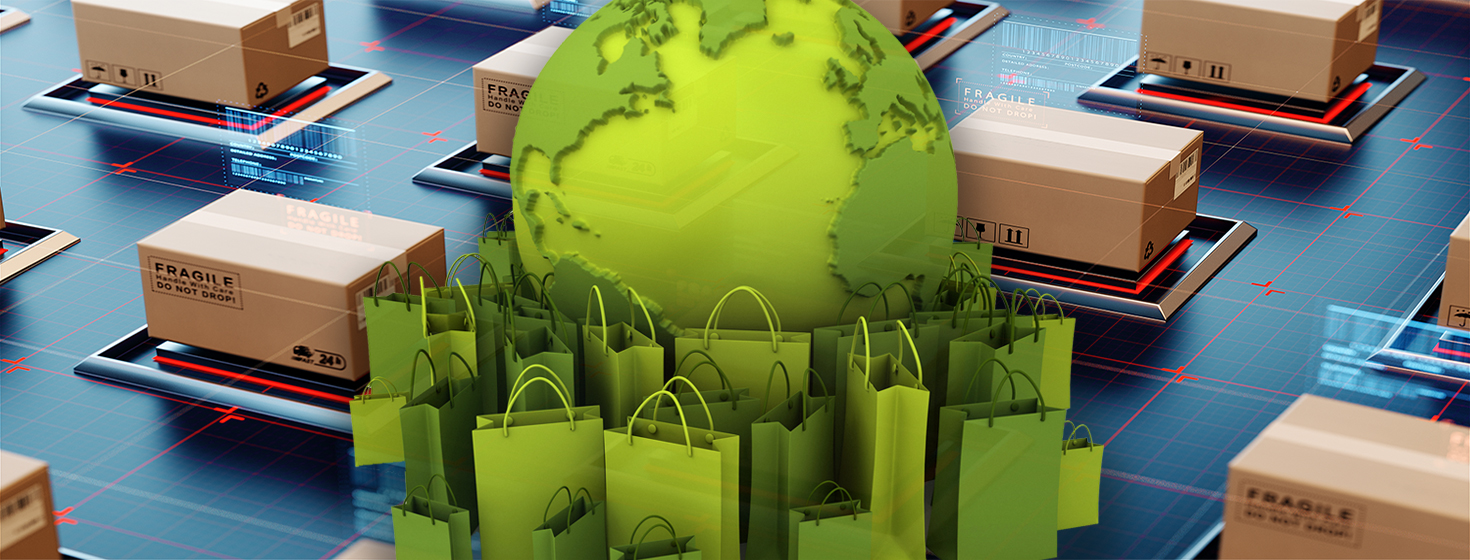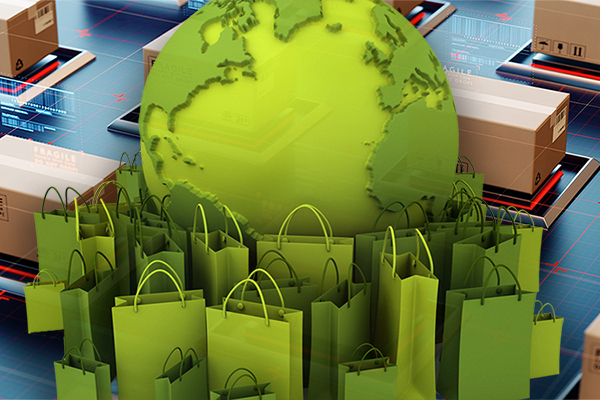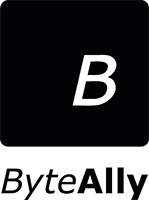Driving Supply Chain Sustainability with Blockchain

Blockchain can transition supply chain management to a sharing economy where people and companies reduce waste and decouple growth from the consumption of finite resources, becoming more sustainable and profitable at the same time.
Blockchain can accelerate a transition from owning to sharing
Sustainability is one of the defining issues of our time.
Businesses are overhauling the way they source, create and distribute products to build a sustainable future.
Sustainability affects everything a business does, including how it works with its suppliers. But too many supply chain managers employ a “take-make-waste” mentality.
As a result, supply chains around the globe remain fraught with inefficiencies due to wasteful use of assets. But there’s a solution at our fingertips: blockchain.
Blockchain can transition supply chain management to a sharing economy where people and companies reduce waste and decouple growth from the consumption of finite resources - thus becoming more sustainable and profitable at the same time.
The power of blockchain
To appreciate the power of blockchain, it’s important to fully understand the technology. Blockchain is a secure electronic ledger that enables multiple parties to distribute data - but not copy it.
The ledger creates an unchangeable record of transactions among multiple parties. Each record is time-stamped and linked to the previous one. Each digital record or transaction in the thread is called a block. The thread allows either an open or controlled set of users to participate in the electronic ledger.
Put another way, blockchain allows disparate users to make transactions - and then creates an unchangeable record of those transactions. Adopting blockchain technology supports more distributed, cheaper and faster ways for people and businesses to share transactional information securely.
Businesses are already incorporating blockchain into supply chain management. For instance, Vinsent provides a blockchain-based platform that makes it possible for wineries and wine lovers to connect directly and sell and buy wine months after harvest.
Vinsent uses blockchain along the entire supply chain. For example, blockchain is used to record the purchase of a bottle of wine, and blockchain empowers everyone in the process to track the creation of the wine from casking to bottling.
Blockchain for Wine? Meet the (Gliding Eagle) Entrepreneur Making it Happen (look, listen, and learn from the video above)
As for other examples:
- Walmart partners with IBM to use blockchain to track the delivery of perishable products along the supply chain.
- BHP Billiton, the world’s largest mining firm, uses blockchain to improve its supply chain processes.
Blockchain is a foundational technology that powers a shift from owning to sharing assets. It’s as foundational and impactful as the internet itself.
Granted, there are doubters. Major foundational shifts always have their doubters.
The internet did. The cloud did. And so does mobile.
But just to give you a sense of blockchain’s impact, let’s look at how blockchain can accelerate this transition from owning to sharing.
Why sharing?
Right now, owners of logistics equipment have visibility into the utilization rates of their assets. Asset owners in different organizations are unable to view each other’s assets, however.
If an asset owner needs more equipment, they can either purchase more or rent from dealers and manufacturers - a manual and painful process (more phone calls, more paper).
But in a sharing economy powered by blockchain, individuals have visibility into the availability of all unused logistics assets (trucks, trailers, construction equipment, warehouse capacity). Instead of expecting customers to own and maintain fleets of logistics equipment, businesses can scale their capacity on demand. In other words, people have access to ownership instead of being owners outright.
If everyone has a clear line of sight into which asset is being used when - and there is a global, decentralized, immutable ledger that provides visibility into how participants in the supply chain can share each other’s assets - people will buy fewer assets and better utilize their current resources.
The X factor: TRUST
This dramatic evolution will happen because blockchain makes it easier for businesses in the supply chain to share assets with each other (rather than buy them outright) by bypassing a central, governing authority.
In a sharing economy powered by blockchain, customers no longer have to go through dealers and manufacturers to scale their fleet. In short, they no longer have to go through the middle man.
Blockchain fosters trust in the supply chain because the secure ledger cannot be changed by actors in the supply chain. With blockchain, people have direct visibility into the health of an asset, its maintenance history, and users.
People also have visibility into the characteristics of those renting and sharing assets through ratings and reviews stored on the blockchain.
That trust makes it possible for people to do radically new things along the supply chain such as creating smart contracts, programming money and creating a digital property.
But I also see some less obvious but important impacts of a sharing economy fueled by blockchain. For instance, consider what would happen if a business owns fewer assets.
The people in charge of managing assets have more time to learn new skills to make the supply chain more effective. The workforce can become more nimble and responsive to change.
Next steps (Running Blockchain Pilots for Your Supply Chain)
Perhaps you are already using blockchain to improve your supply chain. Perhaps you’re just exploring the technology.
Whatever you do, start testing and learning. Consider getting started by testing how blockchain could make just one aspect of the supply chain transition from ownership to sharing. - run a blockchain pilot!
Fortunately, tools such as design sprints can help you test and learn.
With a design sprint, cross-functional teams develop hypotheses for specific customer solutions. And then the team develops a rough prototype tested against feedback from real customers.
The need to be sustainable is only going to increase. With blockchain, supply chain management can play a vital role in addressing this need.
It’s up to players in the supply chain to test and learn now.
About the Author
Mike Edmonds is the Managing Director and VP of Product at Moonshot by Pactera, a digital product studio based in Chicago. He leads a team of digital product managers, experience designers and researchers, and engineers that help brands use design thinking and lean innovation to discover, design and scale lovable products based on emerging technologies. Pactera Technologies Limited is a global delivery partner that helps UPS with technology and high-impact strategic initiatives.
Note: Reprinted with permission of Longitudes, the UPS blog devoted to the trends shaping the global economy.
Running Blockchain Pilots for Your Supply Chain
In 2018, Blockchain was one of the most trending technologies alongside AI.
Blockchain has managed to excite all the stakeholders in the supply chain industry. It is touted to make end-to-end visibility a reality, change B2B communications for good and automate complicated processes using smart contracts. Stakeholders understand the benefits of blockchain, but the biggest question is, how do you get started with it?
The paper “Running Blockchain Pilots for Your Supply Chain - A CIO's Guide” aims to point you towards a first blockchain pilot.
It answers important questions. How exactly is blockchain different from traditional databases and what can blockchain do for us that traditional databases cannot?
The authors take a close look at its features to discuss how they make blockchain a very effective technology when it comes to breaking down information silos, leading to transparency.
Blockchain can also act as the ultimate source of truth when there are multiple organizations participating in transactions.
With its unique features and strengths, blockchain can solve the following problems effectively for the supply chain industry;
- Maintaining one version of the truth across the entire supply chain.
- Empowering organizations to trace and track assets instantly as opposed to days or weeks.
- Making end-to-end visibility possible.
Finally, the paper breaks down the basic components of a blockchain pilot;
- A blockchain network.
- Data extraction tools to extract data from your data resources (ERP databases, EDI files, etc).
- Data standards (ANSI X12, GS1 EPCIS, etc) using which you can send the data to the blockchain. This is necessary for interoperability.
- User interface application that can query the blockchain to display information to the end user.
Running a blockchain pilot will give you perspective on how blockchain will fit in with your use cases, scale, existing technologies, and your team. A newer set of ideas emerge, metrics on efficiency gains can be derived, giving you objectivity. Pilots let you shed obsolete technology and march forward with better-emerging technologies iteratively.
Download the Paper: Running Blockchain Pilots for your Supply Chain
Article Topics
ByteAlly News & Resources
9 Common Mistakes Made In EDI Integrations Blockchain is Vastly Overrated; Supply Chain Cybersecurity is Vastly Underrated Driving Supply Chain Sustainability with Blockchain Running Blockchain Pilots for your Supply Chain World’s Largest Mining Company to Use Blockchain for Supply Chain ManagementLatest in Technology
U.S. Manufacturing is Growing but Employment Not Keeping Pace The Two Most Important Factors in Last-Mile Delivery Spotlight Startup: Cart.com is Reimagining Logistics Walmart and Swisslog Expand Partnership with New Texas Facility Taking Stock of Today’s Robotics Market and What the Future Holds Biden Gives Samsung $6.4 Billion For Texas Semiconductor Plants Apple Overtaken as World’s Largest Phone Seller More Technology













